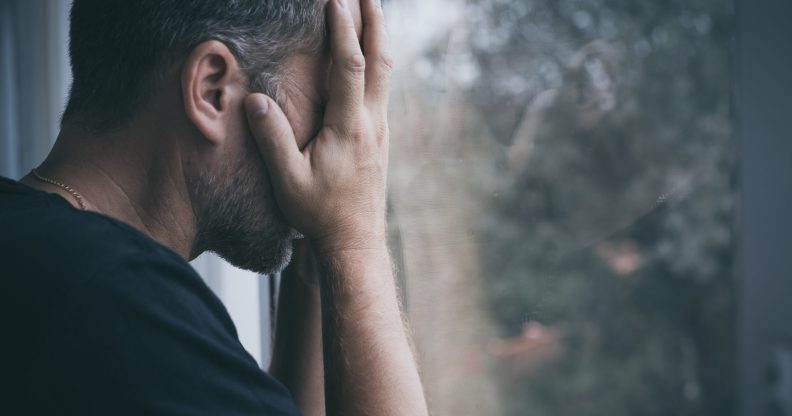Worryingly high number of gay and bi men face violence in relationships, study finds

(Stock image: Envato Elements)
One in every four gay and bisexual men, on average, has experienced abuse from partners in the past year, a study by researchers at Glasgow Caledonian University has found.
The study, which will be presented to the Scottish parliament later this month, found that not only do a large number of gay and bisexual men in the country suffer intimate-partner violence (IPV), but they also face “multiple barriers to accessing support” afterwards.
Professor of health psychology, Jamie Frankis, and Dr Steven Maxwell, who carried out the study, said they hope their findings “lead to policy change on a national level”.
The research, which defined IPV as physical, sexual, psychological, or financial abuse, found that it has a detrimental impact on health, and can cause mental ill-health including, “anxiety, post-traumatic stress disorder, depression and suicidality”.
It was also revealed that services were often “heteronormative”, and “not designed” to support LGBTQ+ victims, and dismissed the idea of gay and bisexual men as victims because of stereotypes of IPV dynamics in heterosexual relationships.
One of the men involved in the study, who remained anonymous, said: “To be a man and even admit that you were in an IPV relationship… it knocks confidence, it knocks your self-esteem and self-worth. The hatred for yourself. The hatred for allowing it.
“There’s a huge stigma around men coming out as domestic-abuse victims, because [as] men, we ‘should’ be able to deal with it and fight back.”
Another victim added that the police “do not take it seriously”, and do not know “how to treat” IPV between two men.
“There’s just a complete lack of empathy or understanding from the police about same-sex relations,” he claimed.
The study recommended that IPV support for gay and bisexual men be improved through changing policy and service provision.
The study comes soon after it was revealed that domestic abuse within LGBTQ+ couples increased during the COVID-19 pandemic.
Amy Roch, the deputy chief executive of LGBTQ+ anti-abuse charity Galop, told PinkNews: “Through decades of work with LGBT+ victims of abuse and violence, [we know] that gay and bi men who are victims of intimate-partner violence are largely erased from the public story of domestic abuse, which impacts on their ability to come forward and seek support.
“Those who do try to access mainstream support often have to contend with stigma and their experiences being minimised. In many parts of the UK, services that meet the needs of gay and bi men simply do not exist.
“Gay and bi men who are survivors of abuse tell us that what they want are services that are delivered by, and for, the community.
“Glasgow Caledonian University’s study is a positive step forward in expanding the conversation around abuse and how it can affect gay and bi men, and the wider LGBT+ community.
“We must ensure that LGBT+ victims and survivors of abuse are not forgotten, and that their experiences are understood and included in the over-all picture of domestic abuse in the UK.”
Rape Crisis England and Wales works towards the elimination of sexual violence. If you’ve been affected by the issues raised in this story, you can access more information on their website or by calling the National Rape Crisis Helpline on 0808 802 9999. Rape Crisis Scotland’s helpline number is 08088 01 03 02.
Readers in the US are encouraged to contact RAINN, or the National Sexual Assault Hotline on 800-656-4673.
How did this story make you feel?

